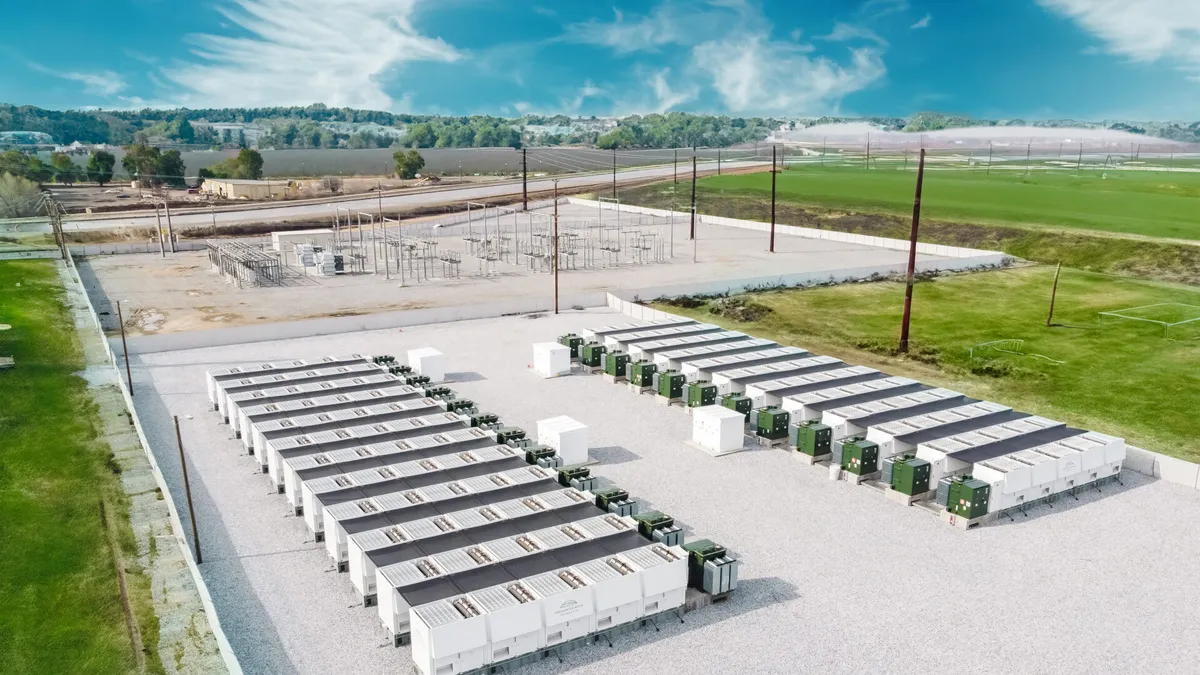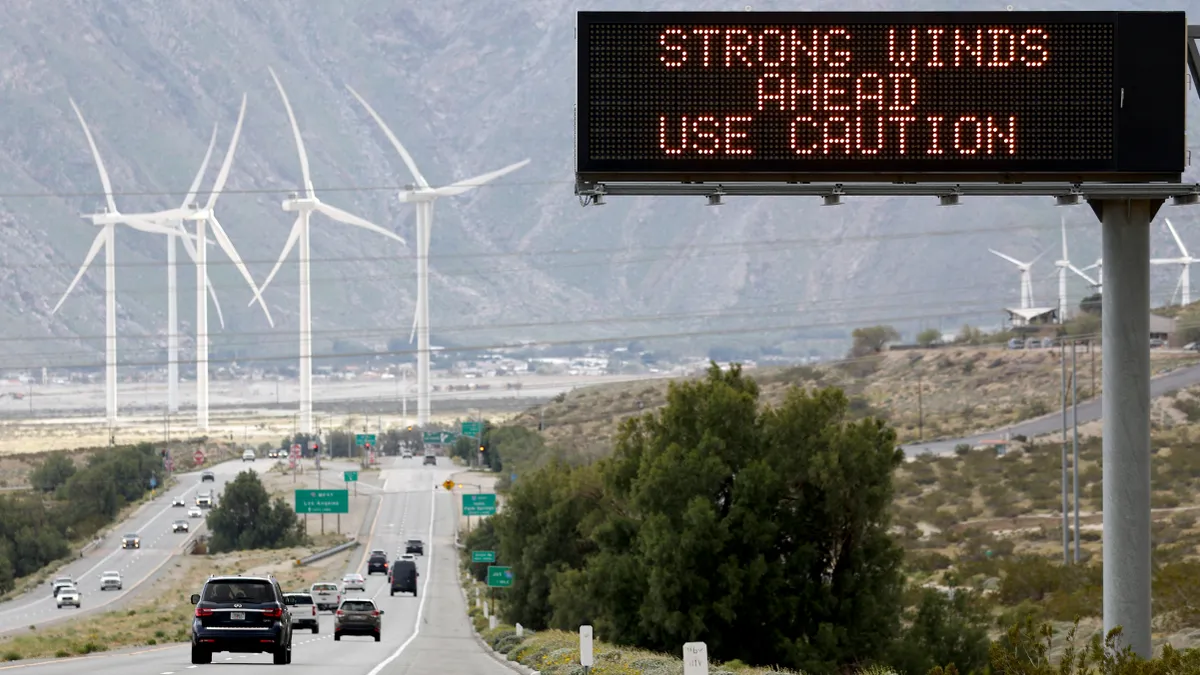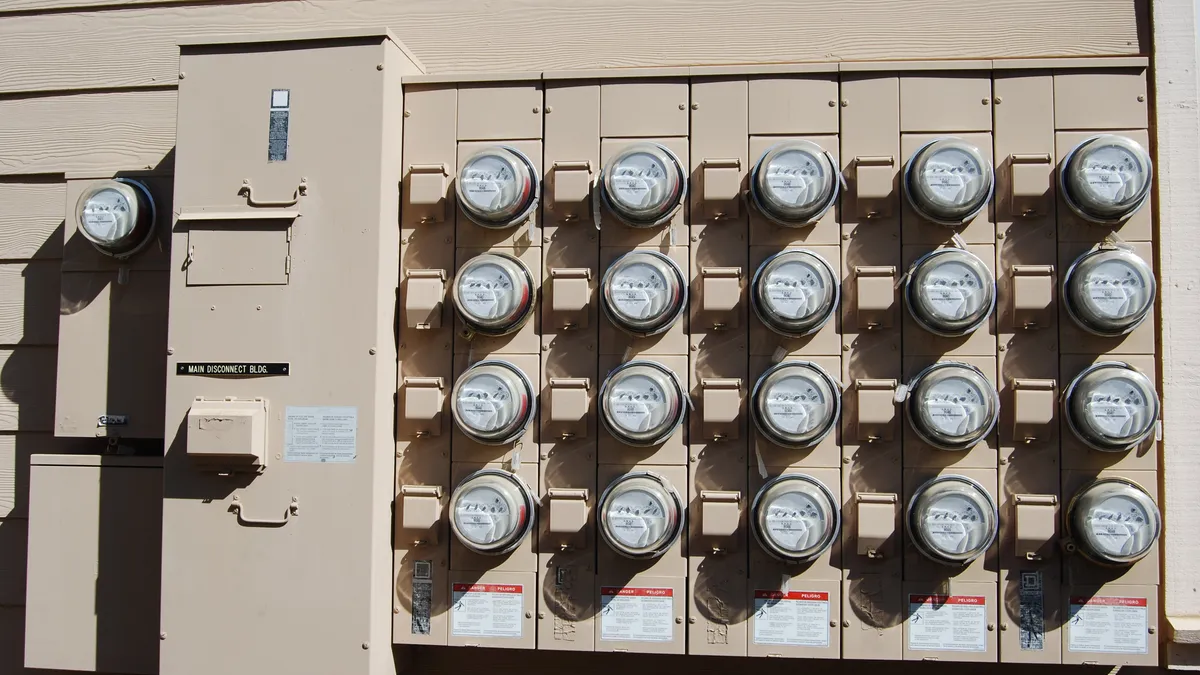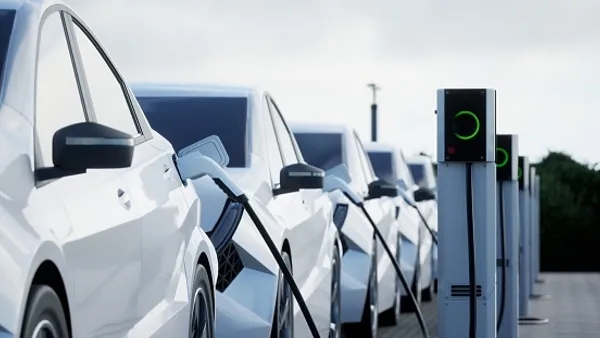In considering how to modernize its electric grid, regulators in the District of Columbia turned to a collaborative process over the past year that included almost 100 stakeholders, six working groups and dozens of meetings, including two all-day marathons that brought together almost 250 participants.
What comes next in the process? Perhaps, more research.
The city had hoped the groups would reach consensus wherever possible, but the resulting 433-page document, published May 31, catalogs an array of support, opposition, conditional support and proposed changes, for the 32 recommendations. Some participants say additional analysis is required, and the Public Service Commission (PSC) says that option is on the table.
"There is a missing and essential next step," said Larry Martin, the Sierra Club's lead for the modernization proceeding.
"The report reflects six different working groups that were not well integrated, and looked at different pieces of the grid mod puzzle," Martin told Utility Dive. He was critical of the process and outcome, though he also said the city did the right thing when it took a working group approach.
"I don't think the report really does a good job of characterizing what we're really trying to accomplish," Martin said.
Hope for consensus
"It was the Commission's hope that the robust stakeholder engagement process would result in consensus on as many of the recommendations as possible," the PSC said in a statement to Utility Dive. "However, this is one of the largest stakeholder engagements undertaken by the Commission, with over 100 unique participants from various backgrounds, so it is not surprising that consensus could not be reached on some of the recommendations."
D.C. is "a very dense, urban populated area with very ambitious [renewable portfolio standard] goals that are serviced by one electric and one natural gas utility. Therefore, the way the District addresses grid modernization will differ compared to other jurisdictions."

Office of People's Counsel, Washington, D.C.
The stakeholder report, Modernizing the Energy Delivery System for Increased Sustainability (MEDSIS), completes the second phase of an initiative examining possible approaches Exelon subsidiary Potomac Electric Power (Pepco) could take in its D.C. territory. The work groups and report were facilitated by the Smart Electric Power Alliance, which said its work "involved taking diverse perspectives and managing interactions among the stakeholders to formulate cohesive policy and pilot recommendations."
The MEDSIS report includes more than two dozen recommendations on data access, non-wires alternatives (NWA), rate design, microgrids, pilot projects and customer impacts. Some have broad consensus. For instance, a recommendation that the PSC "should explore the development of a metric for evaluating carbon footprint impact of distributed energy resource (DER) projects" has broad support, though it was also followed by pages of explanations of party positions.
On the other hand, a recommendation for the PSC to establish certain NWA classifications, such as "Behind-the-meter: Private, public and utility ownership structures," has Pepco's support but is opposed by the D.C. Department of Energy and the Environment. Solar company Sunrun supports the recommendation — with the caveat that utilities should not own behind-the-meter assets, which it says would chill private sector investment and innovation.
"The report does represent a lot of good work, and a lot of good ideas are represented," said Martin. But "it is not a consensus report."
In some ways, that is good, he said. The stakeholder comments and objections for each recommendation and learning means "their perspective is carried forward."
But it also "takes the report from 20 pages to 400 pages," Martin said.
A 'utility unicorn'
The broad recommendations may not raise too many eyebrows, as most states are already engaged in some form of grid modernization proceeding. But the District of Columbia is unique — a "utility unicorn," according to the Office of the People's Counsel (OPC), which advocates for the city's residents.
D.C. is "a very dense, urban populated area with very ambitious [renewable portfolio standard] goals that are serviced by one electric and one natural gas utility. Therefore, the way the District addresses grid modernization will differ compared to other jurisdictions," OPC said.
The city council last year passed a 100% renewable portfolio standard mandate by 2032.
The report calls for the PSC to direct Pepco to move forward with a stakeholder-informed distribution system planning and NWA consideration process, "with the understanding that the process will be iterative and evolving."
"We don't think it's necessary to move forward with additional studies."

Melissa Lavinson
Senior vice president of governmental and external affairs, Pepco Holdings
"There are definitely opportunities for non-wires in the District," Melissa Lavinson, senior vice president of governmental and external affairs for Pepco Holdings, told Utility Dive. "They are a really important solution that can help us meet the demand of the District in a way that doesn't require investments where we traditionally have made them."
"We hope focus on areas where we have a lot of consensus," Lavinson said.
Areas of disagreement
That's not to say the utility agrees with everything, but Lavinson said of the more-than-two dozen recommendations in the report, "90% we are ready to go on."
In total, Pepco opposes three of the report's recommendations, including for the D.C. PSC to initiate a Value of DER and Value of Grid Study, to address uncertainty in how the location of distributed resources impacts their value. Pepco maintains that a competitive market for non-wires alternatives could address the issue.
"We don't think it's necessary to move forward with additional studies," Lavinson said.
The utility also has issues with recommendations that it says could relax reliability standards for microgrids.
The report recommends the PSC "define and establish a new regulated entity" of microgrid operator, to include any entity that operates a microgrid serving multiple customers. Pepco officials balk at this idea, saying that such an entity would be essentially the same as an electric distribution company.
"We think that falls into the realm of a utility," said Lavinson.
Conflicting views on report, process
Pepco is excited for regulators to act on the report, Lavinson said. She stressed that there was far more agreement than not and called the MEDSIS strategy "a great process."
The Edison Electric Institute, which represents investor-owned utilities, agreed and called the process "expansive."
"As the issues faced by both electric companies and commissions get more complex, the success of the MEDSIS process — and broad commission-driven grid modernization initiatives like it across the country — highlights the importance of stakeholder engagement, as well as stakeholder education," EEI Executive Director of Regulatory Affairs Adam Benshoff said in a statement to Utility Dive.
Not everyone was so enthusiastic, however.
The OPC said the stakeholder process "was effective for the most part."
"As any stakeholder process goes, there are always lessons learned in hindsight and room for improvement," OPC said, noting there were "many opinions and recommendations" throughout the dozens of working group meetings.
The Sierra Club's Martin said the sheer volume of meetings worked as "something of a filter for public participation," and created a "bias towards people who were institutionally-affiliated."
"Without clear articulation of what the grid should do, it is difficult to evaluate the suitability of the MEDSIS recommendations."

Larry Martin
MEDSIS Lead, Sierra Club
Martin also lamented what he sees as a lack of specificity in the report describing the desired outcomes, in terms of how the grid should operate.
The report provides principles of grid modernization, but "they do not actually characterize how the grid should perform in terms of capacity for DER penetration, nor incorporation of demand-side management and DER system management," he told Utility Dive in an email. "Without clear articulation of what the grid should do, it is difficult to evaluate the suitability of the MEDSIS recommendations. "
Next steps
What happens next is up to the PSC. The commission will host a town hall to take public comment on June 13, and must issue an order on the report's findings by the end of July.
"As the Commission does with all proposals that come before it, we are reviewing the recommendations to determine if they should be adopted, modified or rejected," a spokerson told Utility Dive. "Some of the recommendations may require additional information gathering and stakeholder engagement."
That could include a comment period or the establishment of a new working group "to flesh out the details needed to support the approval or modification of the recommendation," the PSC said.
Pepco officials say they expect the commission to adopt some of the recommendations, issue directives, and possibly order some working groups. Ultimately, the MEDSIS reports is the result of "an incredibly successful process," company officials said.
"We think a lot of positive will come out of this, and we're really looking forward to the commission ruling," Lavinson said. "There is no doubt the District will be a leader on grid modernization."























